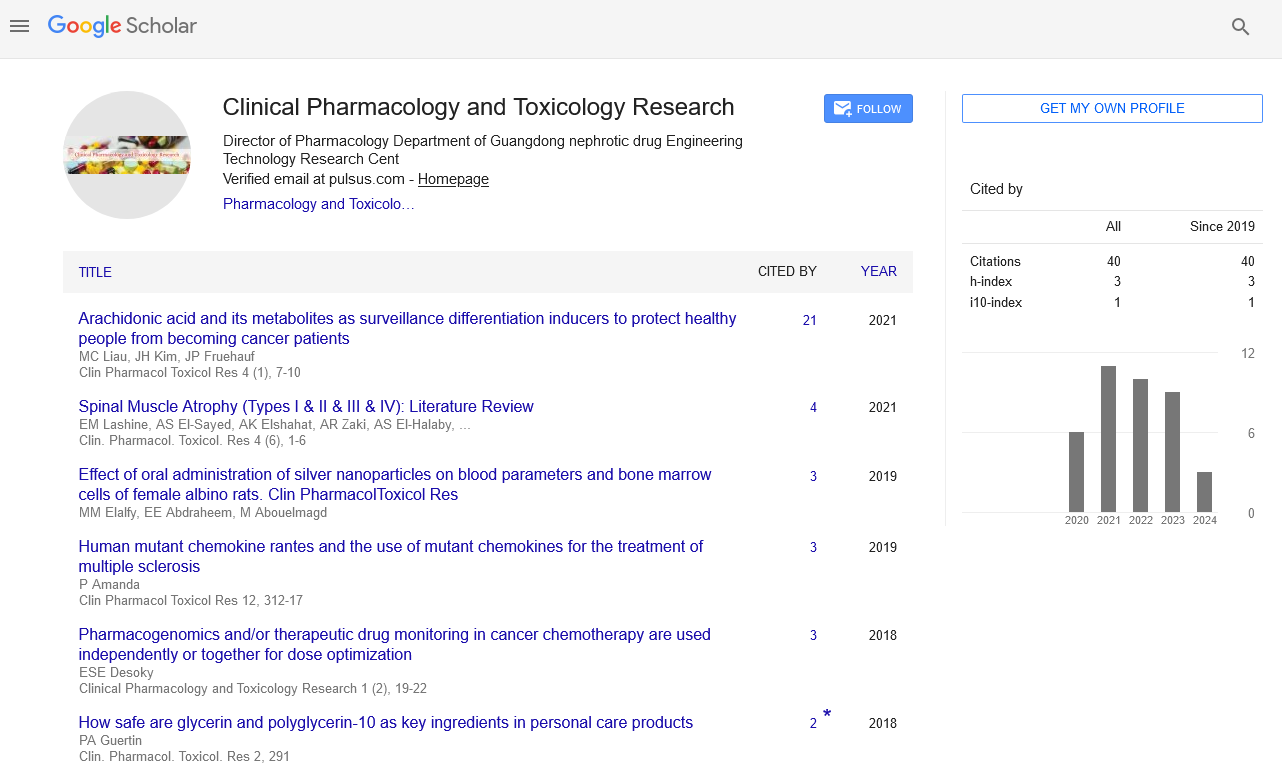
Sign up for email alert when new content gets added: Sign up
Clinical and experimental data on Diphoterine solution decontamination of eye/skin chemical exposures
2nd International Conference on TOXICOLOGY AND CLINICAL TOXICOLOGY
November 11-12, 2019 | London, UK
Alan H Hall,Laurence Mathieu
University of Colorado Denver, USA
Laboratoire Prevor, France
Keynote: Clin Pharmacol Toxicol Res
Abstract :
Diphoterine is an amphoteric, slightly hypertonic, polyvalent, sterile water-based eye/skin decontamination solution which combines passive flushing with active chemical decontamination. Reviews were published in French (Minaro et al, 2000) and Hall et al (2002). Since that time, many more studies of Diphoterine safety and efficacy, both pre-clinical and clinical, have been performed. This review describes earlier studies and details more current ones. Some of these were described in reviews at the Medichem Conference, Basel, Switzerland, 2016, at the AMPAT Congress, Singapore, 2016, and the AOHC Congress, Kaohsiung, Taiwan. Presented here are new not previously presented data.
Materials and Methods: A review of all new data since previous presentations was performed.
Results: Non-Clinical: In vitro/ex vivo comparative decontamination studies with phenol (acid) and tetraammonium hydroxide (TMAH) (base) have been performed. In both cases, Diphoterine solution decontamination was superior to water decontamination. Clinical studies have included a 20-year chemically-exposed eye study from Germany in which Diphoterine solution was found better than any other rinsing solution. A multi-center, multinational clinical study from France and Belgium showed the efficacy of Diphoterine solution for decontamination of chemically-exposed skin, eyes and oral membranes in the pre-hospital and emergency department settings. Similar results were found in a clinical study of occupational phenol exposure outcomes in Taiwan and exposure to various various caustic substances in India.
Conclusion: Based on previously published/presented data and data presented here, Diphoterine solution is a better choice than potable water or other rinsing solutions for first aid, pre-hospital and emergency department (even if delayed) decontamination of chemical eye/skin exposures.
Biography :
Alan H Hall, M.D. is a board certified Medical Toxicologist and is President and Chief Medical Toxicologist of Toxicology Consulting and Medical Translating Services, Inc., Laramie, Wyoming. He is also Clinical Assistant Professor at the Colorado School of Public Health, Denver, Colorado and was formerly Clinical Assistant Professor of Preventive Medicine and Biometrics at the University of Colorado School of Medicine and Assistant Professor of Pediatrics. Dr. Hall was formerly Research Assistant Professor in the Division of Medical Toxicology, Department of Emergency Medicine, Texas Tech University Health Sciences Center, El Paso, Texas. He received his undergraduate degree from Indiana University South Bend, South Bend, Indiana from which university he has Division and University-wide Distinguished Alumnus awards. He received his Doctor of Medicine degree from the Indiana University School of Medicine, Indianapolis, Indiana. Dr. Hall has been in General Practice, trained in Anesthesiology and practiced Occupational and Environmental Medicine and Emergency Medicine.
Laurence Mathieu is the head of the scientific action Group of PREVOR Laboratory. She is an engineer in chemistry and she has a PhD in organic Chemistry. Her research interests are decontamination of chemical exposures (eye, skin, skin carcinogenesis, digestive burns, inhalation) and chemical spills, dermonecrosis due to venoms (spiders, snakes, jellywash) in wound healing and scarring.




